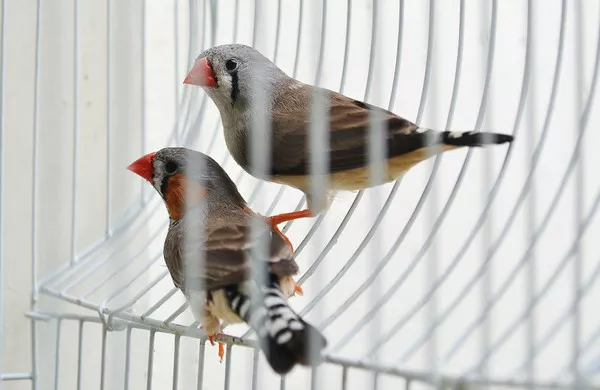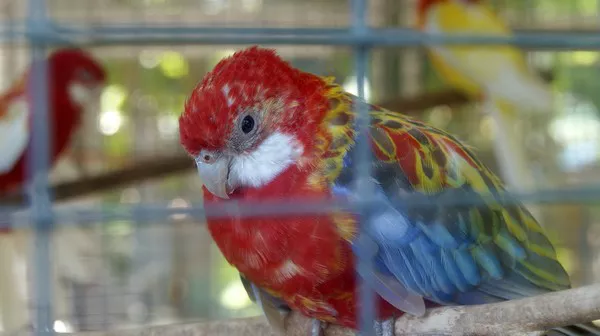Pregnancy in cats is an exciting and sometimes challenging experience for both the mother and her owners. As pet owners, it’s important to understand the ins and outs of the pregnancy process so you can ensure that your cat is properly cared for. One breed that often captures the hearts of pet lovers is the American Shorthair (ASH). Known for their friendly temperament, muscular bodies, and beautiful short coats, these cats are a popular choice for families and individuals alike. But how long is an American Shorthair pregnant, and what should you expect during the pregnancy? This article will cover the pregnancy timeline, symptoms, and care requirements for American Shorthair cats, giving you the knowledge you need to support your feline friend during this crucial time.
Understanding the Basics of Cat Pregnancy
Before we dive into the specifics of an American Shorthair’s pregnancy, it’s helpful to understand the basics of cat pregnancy as a whole. Pregnancy in cats, also called the gestation period, generally lasts around 63 to 65 days, but it can vary between 58 to 70 days, depending on the individual cat and various factors such as age, health, and the number of kittens.
Most cats experience pregnancy in a similar way, regardless of their breed. However, knowing the specific details of your cat’s breed can help ensure you give your pet the best care possible. The American Shorthair is no different in terms of pregnancy duration, but it’s important to understand the signs of pregnancy and how to best support her through the process.
How Long is an American Shorthair Cat Pregnant?
The pregnancy period for an American Shorthair cat typically lasts between 63 to 65 days, or about 9 weeks. This can vary slightly depending on several factors such as the cat’s age, size, health, and whether it’s her first pregnancy. Some cats may give birth a few days earlier or later, and this is generally not a cause for concern. However, if a cat is pregnant for over 70 days, it may indicate a problem, and you should seek advice from a veterinarian.
It’s important to note that the pregnancy timeline can be influenced by environmental factors, including stress levels, diet, and whether the cat has experienced previous pregnancies. Cats that are not spayed and are allowed to mate may have slightly unpredictable cycles, which can sometimes make determining the exact date of conception difficult.
Signs of Pregnancy in American Shorthair Cats
Now that you have a basic understanding of how long an American Shorthair cat is pregnant, let’s look at some common signs of pregnancy in cats. Recognizing these signs early can help you provide proper care and anticipate the birth of the kittens.
Changes in Behavior
Increased Affection: Some pregnant cats become more affectionate and may seek more attention from their owners. They might follow you around the house, purring more often or sitting in your lap.
Nesting Behavior: As the due date approaches, many cats will start to look for a quiet, comfortable place to give birth. If your American Shorthair begins to show an interest in secluded areas, like under a bed or inside a closet, this could indicate that she’s preparing for the birth.
Decreased Activity: Pregnancy can make your cat tired, so you may notice her becoming less active or sleeping more often.
Physical Changes
Enlarged Belly: As the kittens grow, your cat’s belly will gradually expand. This is one of the most noticeable signs of pregnancy.
Nipple Changes: One of the earliest signs of pregnancy is the change in the cat’s nipples. They may become more pronounced, pinker, and larger as the body prepares to nurse the kittens.
Weight Gain: Your cat will gradually gain weight as the pregnancy progresses, particularly in her abdomen. This weight gain is often noticeable during the second half of the pregnancy.
Increased Appetite: Pregnant cats often experience an increase in appetite as their bodies require extra nutrients to support the growing kittens. If your American Shorthair suddenly becomes ravenous, this could be a sign of pregnancy.
Morning Sickness
Just like humans, some cats experience a form of morning sickness, especially during the early stages of pregnancy. You may notice your cat vomiting occasionally or being more lethargic than usual. This is generally normal, but if it continues or worsens, it’s a good idea to consult a veterinarian.
Hormonal Changes
Hormonal fluctuations during pregnancy can cause mood swings in your cat. She might be more sensitive to touch, or in contrast, she may become more demanding for attention.
The Stages of Pregnancy in American Shorthair Cats
Understanding the stages of pregnancy in cats is important for providing proper care and preparing for the birth of the kittens. Here’s a breakdown of the different stages:
Stage 1: Early Pregnancy (Week 1-3)
Changes in Behavior: During the first few weeks, your American Shorthair may not show obvious signs of pregnancy. However, you might notice subtle changes in behavior such as increased affection or seeking solitude.
Hormonal Changes: Hormones are starting to change, and the body is preparing for the developing kittens. Morning sickness may occur during this time.
Embryo Development: The embryos are developing rapidly during the first few weeks, although your cat’s belly will not yet be visibly enlarged. By the end of this stage, the embryos will have grown into small fetuses.
Stage 2: Mid-Pregnancy (Week 4-6)
Physical Changes: By this stage, your American Shorthair’s belly will begin to expand as the kittens grow. You may also notice a slight increase in her weight.
Nipple Changes: The nipples will continue to enlarge and may become pinker as the body prepares to nurse.
Behavioral Changes: The mother cat may begin to seek out a more secluded area to rest as she prepares for the upcoming birth. You may notice her becoming more protective or restless.
Stage 3: Late Pregnancy (Week 7-9)
Visible Belly Enlargement: By this stage, your cat’s abdomen will be noticeably enlarged as the kittens continue to grow. You may even be able to feel the kittens moving inside her belly.
Preparation for Birth: During the final few days of pregnancy, your American Shorthair may show signs of nesting behavior, such as searching for a quiet place to give birth. She may also display increased restlessness.
Behavioral Shifts: Some cats become more withdrawn as they approach their due date, while others may seek more attention from their owners. It’s important to respect your cat’s preferences during this time and ensure she has a comfortable space.
How to Care for a Pregnant American Shorthair
Caring for a pregnant cat requires a little extra attention, but with the right knowledge, you can make sure your American Shorthair stays healthy and comfortable throughout the pregnancy. Here are some tips for caring for a pregnant cat:
Provide Proper Nutrition
A pregnant cat needs a nutrient-rich diet to support the growing kittens. Make sure to feed her high-quality, balanced cat food that is specifically designed for pregnant or nursing cats. Consult your veterinarian for food recommendations.
Some cats may develop an increased appetite during pregnancy, so allow her to eat as much as she wants, provided the food is nutritious.
Create a Comfortable Space
As your cat approaches the later stages of pregnancy, it’s important to create a safe, quiet space where she can relax. Consider setting up a nesting area with soft bedding, such as towels or blankets, where she can give birth when the time comes.
Monitor for Health Issues
Keep an eye on your cat’s health throughout the pregnancy. If you notice any signs of distress, such as excessive vomiting, diarrhea, or a sudden loss of appetite, contact your veterinarian.
Cats can develop infections or complications during pregnancy, so it’s essential to ensure they’re in good health. Regular veterinary check-ups are important to ensure everything is progressing smoothly.
Provide Regular Veterinary Check-Ups
Regular vet visits are essential for ensuring the health of both the mother and her kittens. Your veterinarian can monitor the progress of the pregnancy, offer advice on care, and help identify any potential complications.
If you’re unsure about your cat’s pregnancy or have concerns, always consult your veterinarian for advice.
What Happens During Labor and Delivery?
When the pregnancy reaches its final stages, your American Shorthair may start showing signs that labor is near. These can include restless behavior, panting, and seeking out a quiet, secluded space. During labor, the mother will go through three stages:
Stage 1: Preparing for Birth – This stage can last anywhere from 6 to 12 hours. The mother will exhibit signs of discomfort and may start panting, pacing, or hiding.
Stage 2: Delivering the Kittens – This is the actual birth stage, where the kittens are delivered. The mother will push each kitten out and clean it afterward.
Stage 3: Afterbirth – The afterbirth, or placenta, is passed after each kitten is born. The mother will eat the placenta to provide nutrients and clean up the birthing area.
Once the labor is complete, your American Shorthair will care for her kittens, nursing and keeping them warm. Make sure she has plenty of food and water, as nursing will require extra energy.
Conclusion
The pregnancy of an American Shorthair cat typically lasts between 63 to 65 days, but can vary slightly. Understanding the stages of pregnancy and the signs to look out for can help you provide the best care for your cat during this special time. Make sure to support her with proper nutrition, a comfortable space, and regular veterinary check-ups. If you have any concerns during the pregnancy, don’t hesitate to reach out to your veterinarian to ensure that your cat and her kittens are healthy and happy. With the right care and attention, you can help your American Shorthair bring her new kittens into the world safely and joyfully.
Related Topics:
























